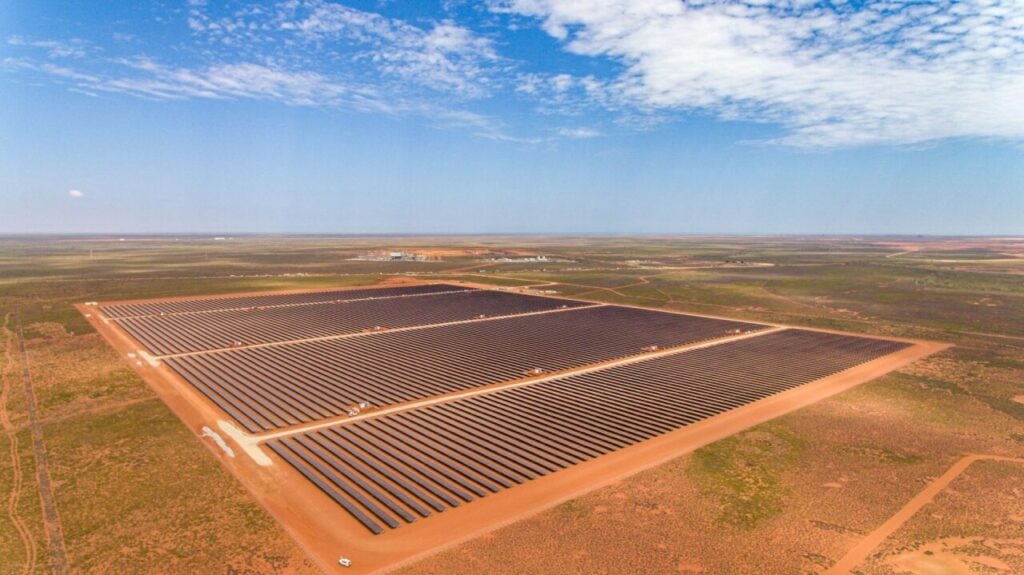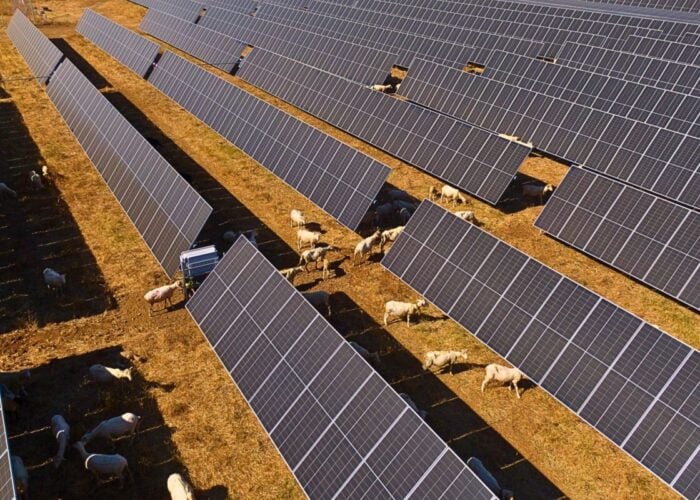
The centre-right Western Australian Nationals Party has outlined its intention to implement a comprehensive State Planning Policy for renewable energy projects should it win the upcoming state election.
Ahead of the state election, scheduled to take place on 8 March 2025, the political party and current opposition to the Labor government has said it will ensure the State Planning Policy for renewables will see regional communities “consulted, considered, and benefit” from the increasing number of renewable energy developments being pursued across Western Australia.
Unlock unlimited access for 12 whole months of distinctive global analysis
Photovoltaics International is now included.
- Regular insight and analysis of the industry’s biggest developments
- In-depth interviews with the industry’s leading figures
- Unlimited digital access to the PV Tech Power journal catalogue
- Unlimited digital access to the Photovoltaics International journal catalogue
- Access to more than 1,000 technical papers
- Discounts on Solar Media’s portfolio of events, in-person and virtual
The party’s leader, Shane Love MLA, said the policy would establish a clear, consistent framework for large-scale renewable energy projects and address significant gaps in the current planning system.
“Western Australia’s existing planning policies fall short when it comes to renewable energy projects, creating a two-tiered system which lacks clarity and consistency,” Love said.
“While we have high standards for other land developments, there is no State Planning Policy to guide the responsible development of renewable energy infrastructure. This is unfair to proponents and neglects the concerns of local communities.”
The proposal to ensure large-scale renewable energy projects, such as solar PV and energy storage, are pursued in a “responsible” fashion echoes the sentiments of the recently elected David Crisafulli’s right-wing Liberal National Party (LNP) of Queensland.
Since taking office, the LNP of Queensland has sought to pursue renewable energy projects that they deemed reasonable and realistic. One of the first casualties of this stance was the 5GW/120GWh Pioneer-Burdekin Pumped Hydro Project, deemed the world’s largest pumped hydro project. It was scrapped because it was “not financially viable, not environmentally appropriate, and the community was never consulted”.
It is worth noting that the LNP’s stance on renewable energy developments was hazier than the Nationals, with Love stating the party’s support for renewable energy projects in Western Australia.
“While we support renewable energy, these projects must be delivered responsibly, with clear and consistent rules which respect the needs of the regions hosting them,” Love said.
Another proposed legislation for renewable energy developments by the Nationals is to mandate community benefit funds. Love highlighted that proponents will be required to collaborate with local governments to establish a community benefit fund, with a baseline contribution starting at 1.5% of the project’s value or tied to energy production.
Election season draws closer in Australia
2025 is gearing up to be a crucial year for Australia’s energy transition prospects, with Western Australia and the Northern Territory both holding state elections with a wider Federal election scheduled to take place in May 2025.
Western Australia’s election could be significant as some of the largest renewable energy proposals are set to be located within the state. Ambition from the government, whether it be a newcomer or the currently elected Labor, must match the industry, which has questioned the government’s support across 2024.
For example, Australian mineral exploration company Province Resources shelved its multi-gigawatt solar and wind-powered green hydrogen project in the state due to a lack of government support.
Revealed in 2021, the project, which was set to be developed in the Gascoyne region of Western Australia and feature 1GW of solar PV and wind energy, was hoping to produce around 60,000 tonnes of green hydrogen or up to 300,000 tonnes of green ammonia.
The company said it had continuously communicated with all relevant departments and ministers and expected the Western Australian government to provide a “timely and appropriate land tenure for the project”.
However, Province said in a statement that the government “failed to offer tenure for the project on terms which would be acceptable to Province and potential project partners, or in the best interests of the company’s shareholders”.
Perhaps more understandably significant to Australia’s decarbonisation journey is the Federal election, which is likely to see the current Prime Minister Anthony Albanese of the Labor Party lock horns with LNP’s Peter Dutton.
Since Albanese took office in 2022, the country has seen vast support for renewable energy developments, especially solar PV, through various mechanisms that have been introduced, such as the often-oversubscribed Capacity Investment Scheme (CIS) and the Solar Sunshot initiative. The results of the first CIS tender saw New South Wales secure 7.1GW of energy generation, with Victoria having secured an allocation of 5GW. Western Australia was provided 2GW with Tasmania and South Australia having been granted 1.2GW each.
In contrast to Albanese’s staunch support for renewable energy developments, Peter Dutton aims to reduce the Australian public’s energy bills by focusing more on oil and gas, coal-fired power, and nuclear reactors. In the process, he would controversially lift a ban on nuclear power that has been in place since 1983 via the Nuclear Activities (Prohibitions) Act.
With many across the energy industry disputing Dutton’s claims that this will reduce household energy bills, the topic is likely to become a focal point for the upcoming election, with energy policy becoming politically weaponised in the process.







